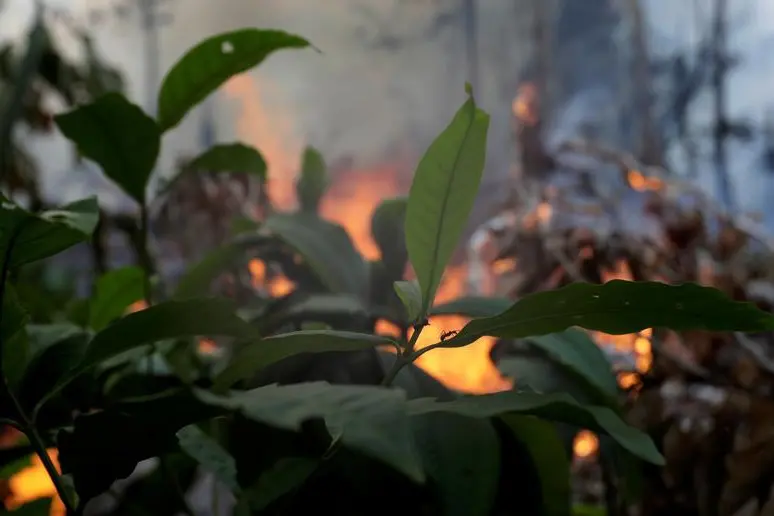PHOTO
NEW YORK - Reforestation improves the management of water, soil and crops as well as storing carbon. It can also yield investment returns higher than Exxon Mobil and most of the other top 100 emitters of greenhouse gases manage. Especially with the Amazon rainforest ablaze, the idea deserves top billing.
Capital returns on sustainable forests can reach 28% but typically range between 8% and 18%, according to separate research by the World Resources Institute and the Global Impact Investing Network. Profit comes from harvesting nuts and fruits, medical research, tourism and other sources.
Exxon’s return on capital employed will just hit the bottom of that range this year, according to estimates compiled by Refinitiv. Another 45 of the 100 biggest polluters earn that or less, including EDF, Thyssenkrupp and Nissan Motor. A majority won’t breach 10%, while 84 will bring in less than 15%, the estimates suggest.
All in, estimates the WRI, there’s a roughly $300 billion annual shortfall in funding to restore degraded forests and the like. That’s equivalent to about 40% of the annual pre-tax profit of the top 100 emitters, Breakingviewscalculates. There’s a case for fossil-fuel industries and others to snap up all the opportunities on investment grounds alone – never mind that trees also sequester atmospheric carbon and reduce flooding and erosion.
Royal Dutch Shell is one company paying attention. Earlier this year it unveiled a plan to spend some $300 million on reforestation and related initiatives. It’s not designed to be a magical solution. Instead it’s just one part of Chief Executive Ben van Beurden’s plan to turn the $225 billion oil and gas giant into a lower-emissions electricity player.
There’s no reason investment should be limited to the biggest producers of greenhouse gases. Heineken’s global manager of corporate social responsibility told the World Water Week conference in Stockholm on Tuesday that reforestation is part of the brewer’s water-management plan. Other industries like utilities, textile makers and food producers could benefit directly as well as making money.
Sustainable forestation is a relatively new business, which means there is scope for mistakes – like planting species that soak up too much water. But the prospect of reaping both financial and environmental returns should prompt the world’s polluters to realize that money, in this instance, really can grow on trees.
CONTEXT NEWS
- The number of forest fires in Brazil has hit the highest level since 2010 and is up 76% this year to Aug. 29 compared to the same period a year ago, according to Brazil space research agency INPE. Some 60% of the Amazon rainforest area is in Brazil.
- World Water Week, organized by the Stockholm International Water Institute, is taking place in Sweden’s capital city between Aug. 25 and Aug. 30. The theme of the conference is “Water for society: Including all.”
(Editing by Richard Beales and Amanda Gomez)
(The author is a Reuters Breakingviews columnist. The opinions expressed are his own.)
© Reuters News 2019





















